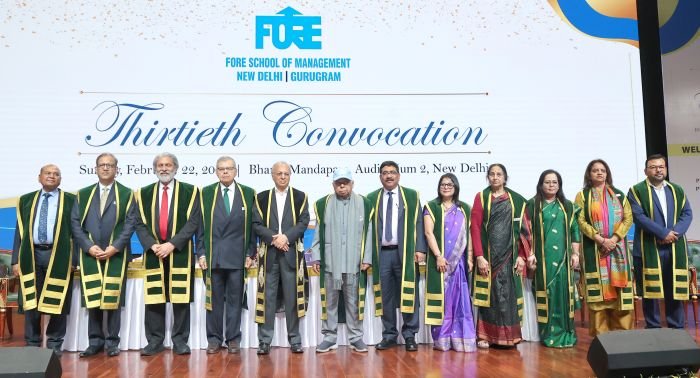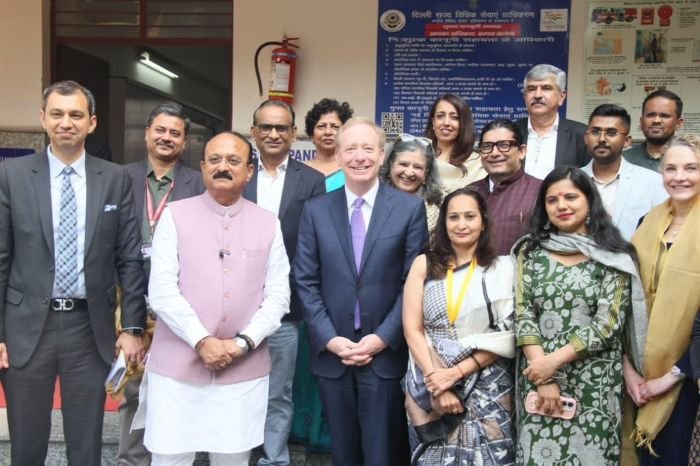
India is set to establish its next Entrepreneurship Development Centre (EDC) in Namibia, marking a significant step in its educational collaboration with African nations. The announcement came during an address by Puneet R. Kundal, Additional Secretary (East & Southern Africa Division), Ministry of External Affairs at a FICCI dialogue with African Heads of Missions on “Expanding Access to Higher Quality Education through IIT-Madras Collaboration”.
The initiative builds upon India’s successful implementation of an EDC in Rwanda in 2022, aimed at nurturing entrepreneurial spirit and creating job providers rather than job seekers. “We are now almost at the final stages of creating the next EDC in Namibia,” Additional Secretary Kundal stated. “We should be signing the MoU pretty soon.”
This development is part of India’s broader strategy to expand its educational footprint in Africa, aligning with the African Union’s designation of 2024 as the year of education. India has been actively supporting education across the continent through various initiatives, including hosting over 25,000 African students in Indian universities and providing distance learning programmes to approximately 27,000 students through the e-Vidya Bharati platform.
India’s educational outreach in Africa extends beyond traditional academic programmes. The country has been instrumental in setting up specialised institutions, such as the National Forensic Science University campus in Uganda, the first Indian public university to establish itself in Africa. Additionally, the Indian Institute of Technology (IIT) Madras has opened a campus in Zanzibar, Tanzania.
The Additional Secretary also alluded to an MoU between IGNOU and the Open University of Kenya, signed during the President of Kenya’s visit to India, noting, “We are in the process of actualising that MoU through setting up study centres across Kenya, and we are trying to involve other countries in it.” He highlighted ongoing efforts to expand collaboration, including discussions with USAID and USDFC to fund study centres across Kenya as part of a trilateral cooperation agreement.
These initiatives come at a crucial time, as Africa’s demographic significance on the global stage is set to increase dramatically. “In 1950, 10% of the world’s population lived in Africa. In 2050, this number is going to rise to 25%,” Mr Kundal pointed out, underscoring the urgent need for robust educational infrastructure on the continent.
The importance of education in strengthening India-Africa ties was further emphasised by Mr Ermindo Augusto Ferreira, High Commissioner of the Republic of Mozambique to India and Dean of African Group Heads of Missions in India. In his address, Mr Ferreira highlighted education as a transformative power and a robust bridge between India and Africa. “By investing in education and strengthening our educational ties, we can create a future where Africa and India stand together as partners working towards common goals and shared prosperity,” Ferreira stated. He underscored the potential for collaboration in capacity building, student mobility, collaborative research, and digital education, viewing these as key to addressing shared challenges and fostering innovation.
The establishment of IIT Madras in Zanzibar, Tanzania, was highlighted by H.E. Mrs Anisa Kapufi Mbega, High Commissioner of the United Republic of Tanzania to India, as a significant milestone in India-Africa educational cooperation. “The Tanzania government would like once again to express its appreciation to the Government of India and IIT Madras for choosing Tanzania as a host,” Mbega stated. She emphasised that the institute would provide affordable, world-class education in data sciences and artificial intelligence to students from Tanzania, Africa, and beyond. The Tanzanian government has committed approximately USD 14.8 million to construct the permanent campus, demonstrating its dedication to this collaborative venture.
In his welcome address, R. Ganapathi, Chairman, FICCI Africa Council and Chairman, Trigyn Technologies, emphasised the crucial role of education in India-Africa collaboration. He highlighted the success of Indian Institutes of Technology (IITs) in transforming India’s educational landscape and economy. Ganapathi noted the recent establishment of IIT Madras’ offshore campus in Zanzibar, Tanzania, as a significant milestone in expanding high-quality education in Africa. He stressed that such initiatives align with Africa’s Agenda 2063, which aims for increased tertiary education in science and technology. Mr Ganapathi underscored the potential of IITs in Africa to foster entrepreneurship, create a skilled workforce, and contribute to the continent’s economic growth, urging further expansion of IIT presence across African nations.
Prof. Raghunathan Rengaswamy, Dean (Global Engagement), IIT Madras, India; Prof. Preeti Aghalayam, Dean and Director-in-Charge, IIT Madras, Zanzibar Campus; and Mr. Manab Majumdar, Senior Advisor, FICCI, also spoke on occasion.







